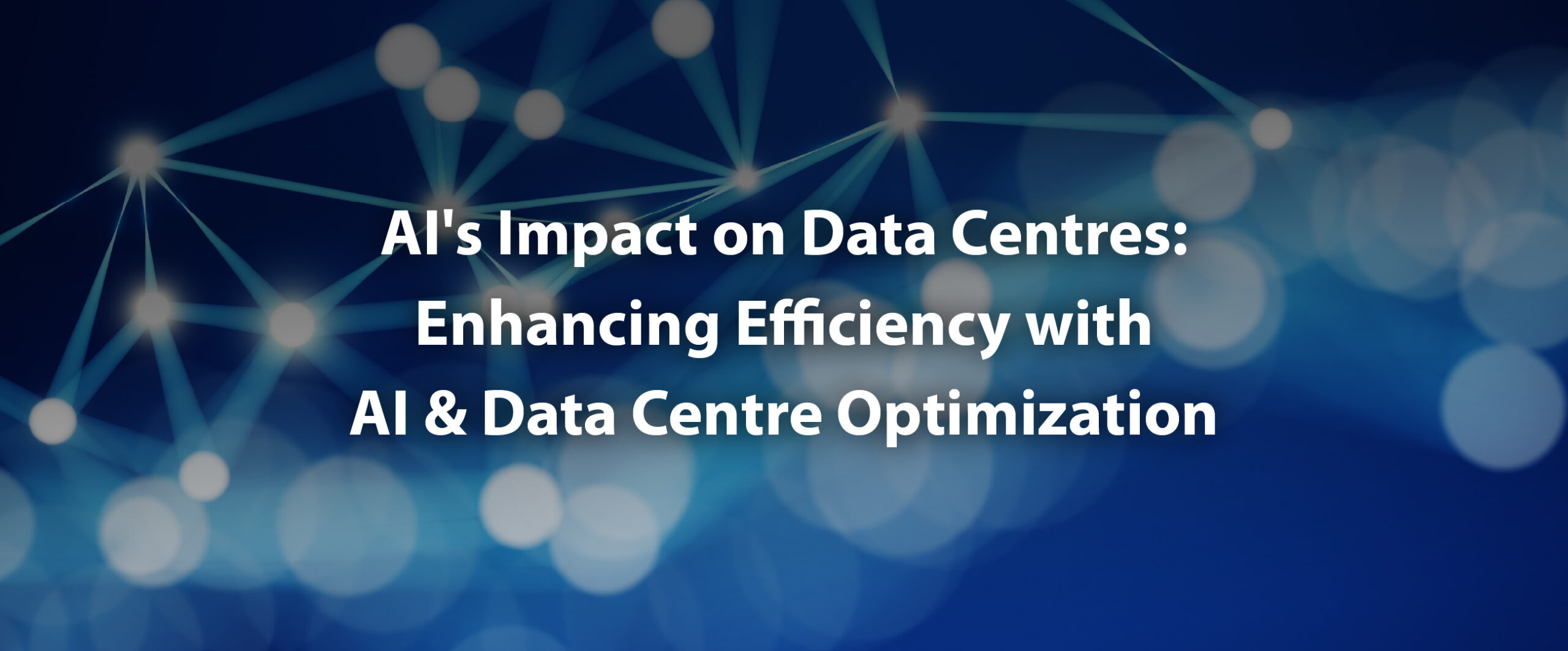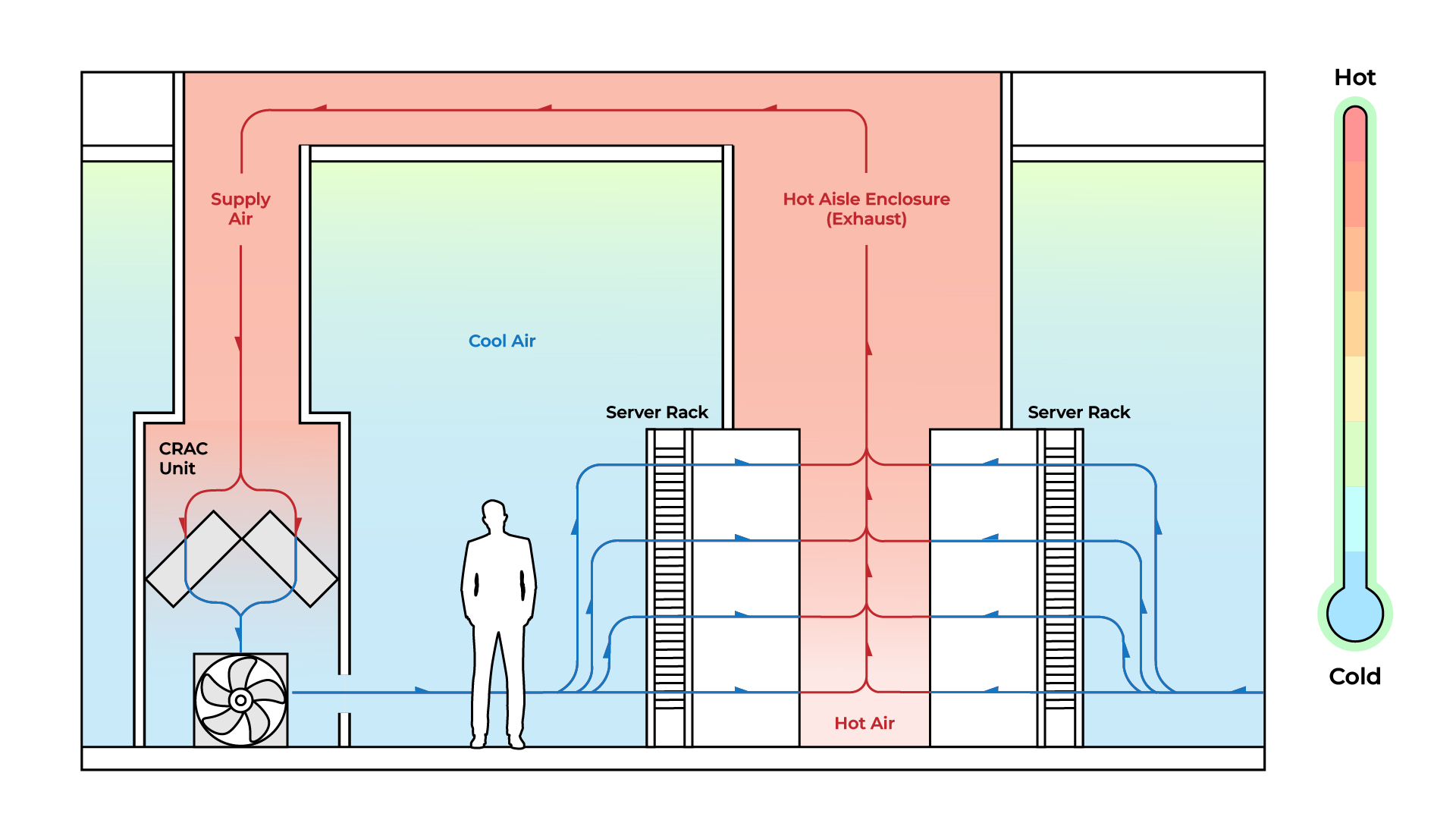
Artificial Intelligence (AI) and machine learning have revolutionized the way data centres operate, providing advanced tools for monitoring equipment performance and predicting replacement needs. However, the impact of AI goes beyond equipment management—it enables real-time optimization of data centre efficiency. By applying AI to power and cooling systems, data centres can dynamically optimize their environments, leading to peak performance and cost-effective operations.
AI Improves Data Centre Efficiency
Data centres consist of various components, but power and cooling are crucial for their overall efficiency. Traditionally, optimizing these aspects was challenging due to limited variables and the inability to make real-time adjustments. However, AI introduces dynamic optimization capabilities that significantly enhance data centre efficiency.
Challenges Before AI
In the past, data centres relied on a uniform approach to cooling and power management, regardless of actual demand. Cooling units ran at the same speed and energy levels throughout the facility, leading to inefficiencies. Similarly, power distribution lacked real-time monitoring, making it difficult to measure individual unit performance. These limitations resulted in resource waste and potential risks.
AI’s Contribution to Data Centre Efficiency
AI revolutionizes data centre efficiency by enabling precise management of cooling systems. AI algorithms intuitively adjust cooling speeds and energy consumption based on the specific load of each unit, reducing inefficiencies. Additionally, AI allows real-time tracking of power draw in data processing units, enabling quick identification of suboptimal performance. With AI, data centres gain deep monitoring capabilities and the ability to make instant adjustments for maximum efficiency.
AI algorithms intuitively adjust cooling speeds and energy consumption based on the specific load of each unit
Benefits of AI for Data Centre Efficiency
The implementation of AI brings several benefits to data cenrers. AI-powered cooling systems ensure optimal temperature levels and minimize cooling costs. By accounting for external factors such as temperature and humidity, AI ensures efficient cooling when necessary. Moreover, AI enables predictive maintenance, identifying equipment failures before they disrupt business operations. This proactive approach reduces maintenance costs and optimizes the lifespan of data centre components, resulting in unprecedented efficiency levels.
AI vs. People
While AI enhances data centre operations, it does not replace human expertise. AI fills gaps that are challenging for manual labor to address effectively. AI can continuously monitor and evaluate data centre systems without human presence, providing constant attention. However, the physical work and expertise of data centre technicians and engineers remain essential for tasks such as equipment adjustments and responding to system changes. AI complements human knowledge, allowing data centres to achieve higher levels of efficiency and effectiveness.
How AI Benefits Data Centre Customers
The adoption of AI in data centres brings significant benefits to both operators and customers. Well-implemented AI ensures real-time equipment efficiency and enables accurate future planning. Dynamic optimization driven by AI enhances overall data centre performance without compromising reliability. Customers can enjoy optimized performance, reduced downtime risks, and potential cost savings.
As AI continues to evolve, data centres will witness even greater improvements, benefiting operators and customers alike. The integration of AI into data centre operations has revolutionized the way efficiency is achieved. By leveraging AI’s capabilities, data centres can optimize power and cooling, minimize waste, and enhance overall performance. As AI continues to advance, its role in data centres will become increasingly vital, paving the way for a more efficient and sustainable future.
